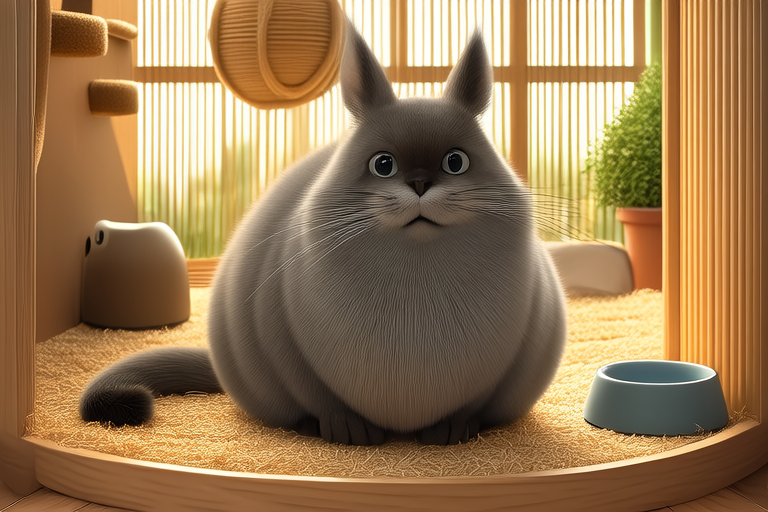How to Create a Happy Home for Your New Chinchilla BFF
Welcome to the delightful world of chinchillas! These fluffy, playful creatures are not just pets; they become cherished members of your family. Creating a happy home for your new chinchilla BFF requires careful planning and attention to their unique needs. This guide will walk you through everything from setting up the perfect habitat to ensuring they stay healthy and happy.
Ideal Chinchilla Habitat Setup
The first step in creating a happy home for your chinchilla is setting up the right habitat. Chinchillas need a spacious cage with plenty of room to move around. Opt for a wire cage with a solid bottom tray to prevent injuries. The cage should be large enough to accommodate a wheel, a hide box, and various toys.
Place the cage away from direct sunlight, drafts, and noisy areas. Chinchillas are nocturnal, so ensure they have a quiet place to rest during the day. Line the bottom of the cage with paper-based bedding or fleece liners, which are safer than wood shavings.
Temperature Control
Chinchillas are native to the Andes Mountains, where temperatures are cool and dry. Maintaining the right temperature is crucial for their comfort and health. Keep the room temperature between 64°F and 70°F (18°C to 21°C). Avoid placing the cage near windows or air conditioning vents, as sudden changes in temperature can stress them out.
Use a hygrometer to monitor humidity levels, aiming for 40% to 60%. If the air becomes too dry, consider using a humidifier to add moisture to the environment.
Dust Bathing Area
Dust bathing is essential for chinchillas’ grooming and overall well-being. Provide a shallow dish filled with commercial chinchilla dust, which is specially formulated to absorb oils and dirt from their fur. Ensure the dust bath is shallow enough for them to easily hop in and out.
Change the dust regularly to maintain hygiene. Avoid letting them bathe more than once every two days, as over-bathing can strip their fur of natural oils.
Toys and Enrichment
To keep your chinchilla mentally stimulated and physically active, provide a variety of toys. Chew toys made from untreated wood, cardboard, or safe plastics help wear down their continuously growing teeth. Puzzle feeders and treat-dispensing toys encourage problem-solving skills.
Rotate toys periodically to keep things interesting. Chinchillas also enjoy exploring tunnels, hammocks, and platforms within their cage. Regular playtime outside the cage under supervision provides additional stimulation.
Diet Specifics
A balanced diet is vital for your chinchilla’s health. Their main food source should be high-quality pellets specifically designed for chinchillas. Supplement their diet with fresh hay, such as timothy hay, which aids digestion and keeps their teeth healthy.
Offer small amounts of fresh fruits and vegetables occasionally as treats. Avoid feeding them anything that could cause digestive issues, like iceberg lettuce, beans, or corn. Always introduce new foods gradually to prevent gastrointestinal upset.
Grooming Needs
While chinchillas groom themselves through dust bathing, regular brushing helps remove loose fur and prevent matting. Use a soft-bristled brush gently to avoid causing discomfort.
Check their eyes, ears, and nose daily for any signs of discharge or irritation. Trim their nails every few weeks if necessary, using proper nail clippers and taking care not to cut the quick.
Social Interaction Requirements
Chinchillas are social animals and thrive on interaction. Spend quality time with your chinchilla each day, handling them gently and speaking softly. They enjoy being petted but may not always tolerate rough handling.
If possible, consider adopting a bonded pair of chinchillas. They provide companionship and reduce loneliness. However, ensure they get along well before introducing them to each other.
Health Monitoring Tips
Regular health checks are essential to catch any potential issues early. Monitor their weight, appetite, and behavior daily. Look for signs of illness, such as lethargy, diarrhea, or labored breathing. Consult a veterinarian familiar with chinchillas if you notice any concerning symptoms.
Vaccinations are not typically required for chinchillas, but routine check-ups can help maintain their health. Keep an eye on their dental health, as malocclusion (overgrown teeth) can occur without proper chewing opportunities.
Advice on Integrating a New Chinchilla into the Household
Introducing a new chinchilla to your household requires patience and careful planning. Start by placing their cage in a quiet area away from other pets. Gradually acclimate them to the sounds and smells of your home.
When introducing a new chinchilla to existing pets, supervise interactions closely. Some chinchillas may bond quickly, while others may take longer. Be patient and allow them to establish a relationship at their own pace.
In conclusion, creating a happy home for your new chinchilla BFF involves providing a suitable habitat, maintaining the right temperature, offering enrichment, and ensuring proper nutrition and social interaction. By following these guidelines, you’ll help your chinchilla live a long, healthy, and joyful life. Remember, every chinchilla is unique, so tailor their care to suit their individual needs.
